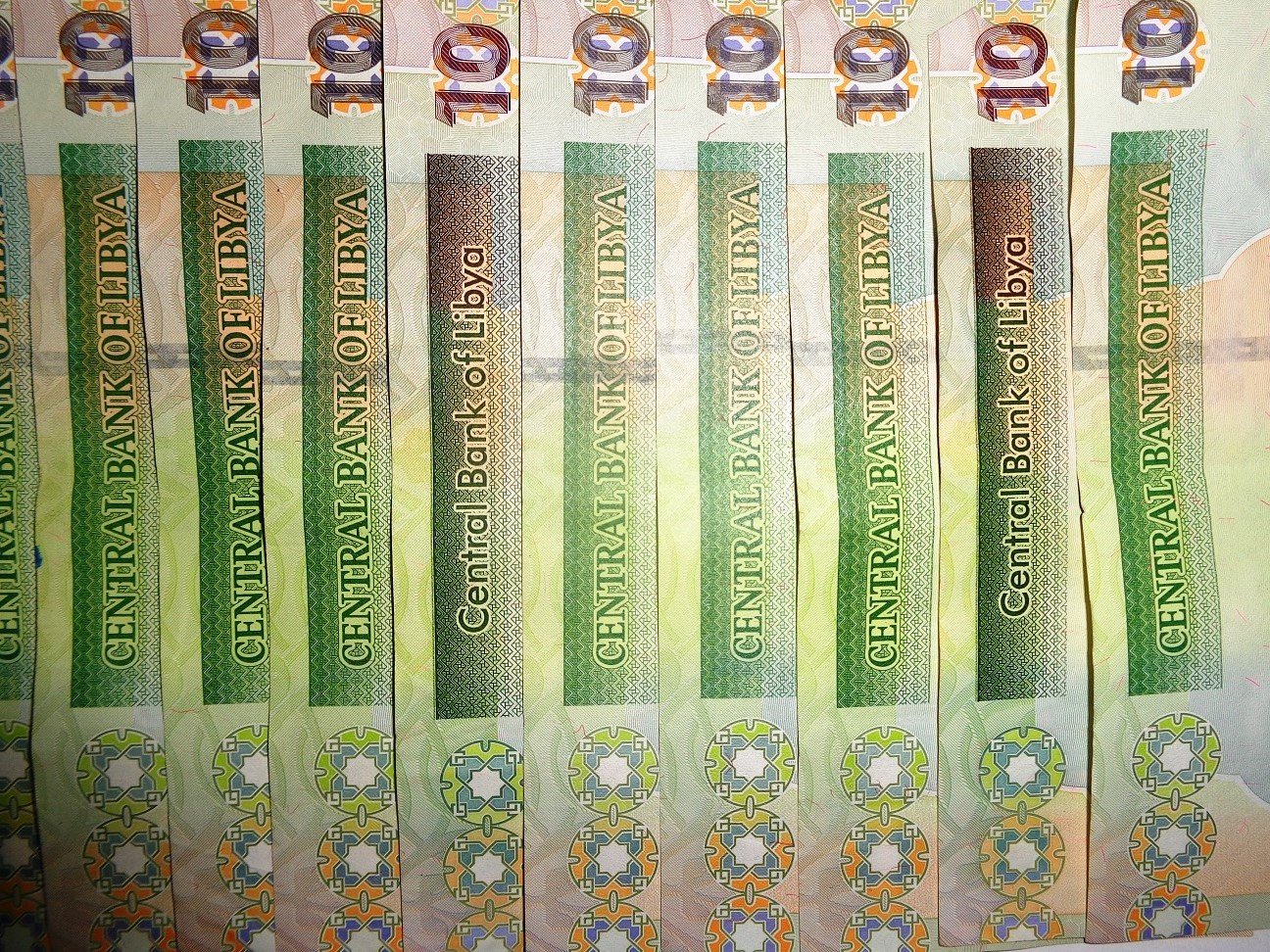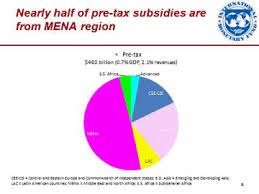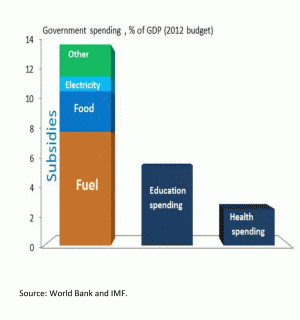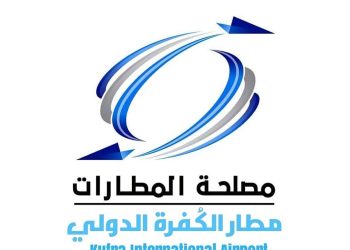By Sami Zaptia.
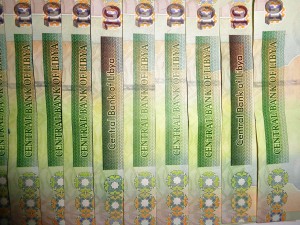
Tripoli, 6 July 2014:
For the first time in Libya’s history, the national budget commits the government to reforming its subsidy . . .[restrict]system.
Article No 24, the 2014 budget commits the government to substitute the current “goods and fuel subsidies into cash subsidies” and sets a deadline for this as 1 January 2015.
The budget says that this reform should be within “clear aims that provide social and economic stability” and resource use and national security.
The budget clarifies that subsidies are to continue in the meanwhile, calling on the Ministry of Economy and its departments to implement this through a clear plan using the National ID Number and through a realistic population count. It also prescribes that the list of subsidized goods are reduced through a plan proposed by the Ministry of Economy.
Article 28 specifies that the National ID Number is used for all budget disbursements, as specified by Law No. (8) of 2014.
The subsidies section of the 2014 budget totals LD 11.93 bn which is made up of mainly the LD 7 billion in fuel subsidies. Petrol in Libya is currently sold at LD 0.15/litre (US$ 0.12/Euro 0.09/GBP 0.07 per litre) and it is commonly believed that a large amount of this subsidized fuel is smuggled to Libya’s neighbouring countries.
In Tunisia, a litre of petrol, for example, is sold for LD 1.30, and as you drive through the border crossing with Libya, Libyan subsidized petrol is sold all along the side of the road for kilometres.
The Libyan state is considering a smart card system issued to consumers on the basis of them having a National ID number in the hope of reducing fuel smuggling. The Libyan state is also considering substituting state food subsidies for direct cash payments into the bank accounts of citizens.
The Child Benefit, which is listed under the subsidies section, was introduced recently by the GNC.
| Subsidies 2014 Budget | LD billion | |
| 1 | Medicines | 0.700 |
| 2 | Food stuffs | 1.800 |
| 3 | Fuel | 7.000 |
| 4 | Electricity and public lighting | 0.800 |
| 5 | Water and sanitation | 0.400 |
| 6 | Garbage/Public Cleanliness | 0.514 |
| 7 | Animal feed | 0.031 |
| 8 | Fertilizer (urea) | 0.006 |
| 9 | Child benefit 2013 | 0.680 |
| Total: | 11.931 |
Leading Libyan businessman Husni Bey was delighted by the decision to tackle the matter of subsidies head on and oblige the government to take action by January 2015.
“This is the first time an article of law within the budget is dedicated to the change of the subsidy system”, he enthused to Libya Herald.
“This new change will help distribute equitably the subsidy for all Libyans, whether post conflict Libya refugees, war displaced, emigrated, poor or rich , living in Libya or out of Libya”.
“It will also help contain the widespread smuggling of fuel and staple food stuff out of Libya estimated today at about LD 4 billion in market prices. The reform of the subsidy system will also stop corruption and the diversion of goods from the cooperatives to the supermarkets.”
From a security and stability point of view, Bey added that the reform of the old subsidies system will also “stop the reason for the ongoing fighting on the border regions for control of the smuggling routes to Tunisia, Chad, Niger, Sudan and Egypt”. These regular clashes that have occurred since the 17 February Revolution are often “wrongly branded as tribal wars”, explained Bey.
The anticipated subsidies reform will also “reduce congestion on the roads, reduce waste and abuse of goods products and fuel. The reform will also help to become a driver of local economies and boost the private sector by doubling its role in the economy”, explained one of Libya’s leading entrepreneurs.
“It has been a long personal battle to expose the corrupt, the smugglers, and the abusers of power built around subsidies. We will not stop until we see the policy of subsidy reform implemented and Libyans vindicated”, Bey added.
“It will indeed be a new dawn for Libya as subsidies represent 25% of the Budget and 20% of GDP. This is almost the size of the totality of the Libyan private sector”, Bey explained.
The views of Husni Bey are backed up by the IMF. The LD 7 bn subsidy on fuel in the 2014 budget means, as the IMF has been at pains to point out, subsidies “weigh on government budgets at the expense of much needed investment in healthcare, education and infrastructure”. The IMF also says that fuel subsidies “tend to encourage capital-intensive industries to the detriment of employment-intensive activities”. Subsidies also “foster overconsumption”, it explained.
According to an IMF global report on subsidies reform published in 2013, (Subsidy Reform: lessons and implications) fully 16.4 percent of Libyan government revenues go toward subsidies for petroleum products. Since Libyan refineries do not produce sufficient supplies for the domestic market, this means that refined product is imported at world prices and sold at a substantial loss at pumps in Libya.
At the equivalent of €0.18 a litre, Libyan motorists enjoy the fifth cheapest petrol in the world, the IMF report had claimed. In fact, since the report had been written, petrol prices had fallen to today’s price of LD 0.15/litre (US$ 0.12/Euro 0.09/GBP 0.07 per litre).
In addition, the IMF calculated that 1.85 percent of Libyan government spending went on subsidizing electric power. An assessment earlier this year by the General Electricity Company of Libya (GECOL) suggested that if electricity were sold at commercial rates, every Libyan family of five would be looking to pay LD 4,000 a year more for their power and light.
With power being sold at the equivalent of one Euro cent/kWh, GECOL not only runs at a loss but, because it can accumulate no funds for fresh investment, must look to the state budget for all new capital expenditure. Further, it appears that GECOL’s problems are compounded by a failure among consumers to settle their bills.
Moreover, because electricity is so cheap, there is no incentive for users to conserve power, meaning that, with the current rate of subsidy, the government’s bill is almost bound to go up.
A recent Tripoli conference on renewable energy was told that tapping into Libya’s considerably solar and wind power potential could only happen if realistic consumer prices could defray the required capital investment.
In December 2013, the then Economy Minister Mustafa Abufunas had announced that that subsidies would be removed over 30 months in three stages. He also revealed that his ministry had carried out wide studies of subsidy reform, including work with the IMF, World Bank and FAO, as well as looking at the experiences of neighbouring states.
The Minister said that a proposed subsidy reform law substituting goods subsides for cash subsidies was with the GNC. Abufunas had felt that armed with the new National ID Number, the state would probably be in a better position to enforce a direct cash instead of goods subsidy reform plan.
The cash subsidy plan would reduce corruption, contraband, smuggling, as well as reducing the role of and load on the state. The reform would also give businesses the opportunity to operate in the subsidized sectors without the warping effect of the state subsidies, he had explained.
Specifically on fuel and electricity subsidies, the Minister admitted that it would be difficult to remove fuel subsidies totally or in one move. It was therefore decided to remove them over 30 months and in three stages. The fuel subsidies were particularly sensitive he felt in view of the fact that it was used widely by the general public and business to transport goods and because Libya had no public transport systems.
On electricity subsidies, the Economy Minister said that it was decided to postpone ending subsidies as it was felt that the state is unable to implement these and that unlike fuel or goods, electricity is not easily smuggled out of the country. [/restrict]
